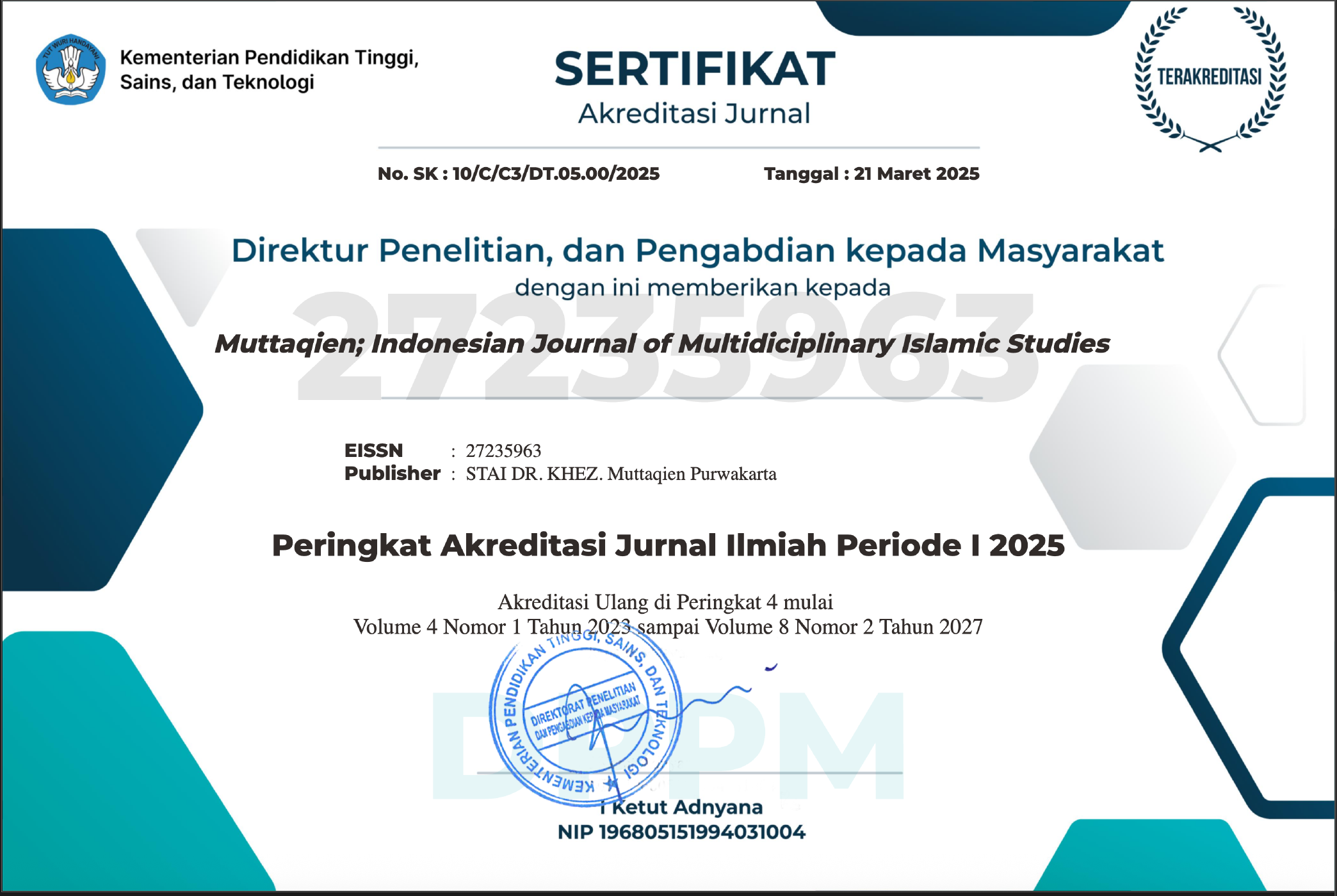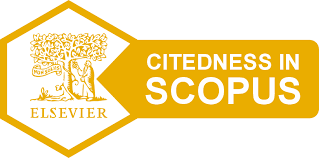Optimalisasi Pengelolaan Zakat di Kecamatan Sedong Kabupaten Cirebon
Keywords:
Zakat, Pengelolaan, KesejahteraanAbstract
In various cultures, the values of sharing and concern for others play a crucial role. In the context of Islam, the concept of zakat promotes social justice and well-being. This research focuses on the management of zakat in the Sedong District, Cirebon Regency, to understand its effectiveness. The study emphasizes the importance of fair recipient selection, transparency in fund utilization, and the empowerment of beneficiaries' economies. Community participation, from collection to evaluation, is key to addressing the complexity of zakat management. Involving the community can make zakat a more potent tool in reducing poverty and fostering social inclusion. This research aims to contribute to the understanding of the role of zakat in alleviating poverty and building communities in the Sedong District. The findings can be used to enhance zakat programs, making it a more effective instrument in improving well-being and social inclusion in the region.
References
• Al-Qur’an. (n.d.).
• Alim, H. N. (2023). Analisis Makna Zakat Dalam Al-Quran: Kajian Teks dan Konteks. AKADEMIK: Jurnal Mahasiswa Humanis, 3(3), 161–169. https://doi.org/10.37481/jmh.v3i3.617
• Candrakusuma, Z. M. S. & M. (2021). Sinergi Amil Zakat Indonesia: Kontekstualisasi Konsep Amil Zakat Berdasar Perundang-Undangan. Al-Mabsut: Jurnal Studi Islam Dan Sosial, 15(1), 75–91.
• Fathaniyah, L., & Makhrus, M. (2022). Peran Organisasi Pengelola Zakat dalam Pemberdayaan Masyarakat di Kabupaten Banyumas. Jurnal Ilmiah Ekonomi Islam, 8(1), 632. https://doi.org/10.29040/jiei.v8i1.4430
• Hakim, A. R., Arif, S., & Baisa, H. (2014). Peran Zakat dalam Pembangunan Pendidikan di Kota Bogor (Studi Kasus Pendayagunaan Zakat Bidang Pendidikan Dompet Peduli Ummat Daarut Tauhid Cabang Bogor). Jurnal Ekonomi Islam, 5(2), 243–272.
• Hasanah, U., Maghfur, M., & Qomar, M. N. (2021). Literasi Zakat: Interpretasi Masyarakat Terhadap Kewajiban Membayar Zakat. Journal of Islamic Social Finance Management, 2(1), 83–92. https://doi.org/10.24952/jisfim.v2i1.3822
• Hasmayana. (2022). Trasparansi Pengelolaan Zakat dalam Meningkatkan Kepercayaan Muzakki pada BAZNAS Kota Parepare. IAIN Parepare.
• Mursyidin. (2022). Zakat Sebagai Penentuan Pengembangan Moral , Ekonomi dan Sosial Kemasyarakatan. Jurnal Ilmiah Ekonomi Islam, 8(03), 3466–3475.
• Nasar, M. F. (2014). Transisi BAZNAS dan Peran Kementerian Agama.
• Putra, T. W., & Naufal, ahmad. (2019). Konsep Manajemen Pengumpulan Dana Zakat. Madinah: Jurnal Studi Islam, 6(2), 241–267.
• RI, A. (n.d.). Standarisasi Amil Zakat. 48.
• Ridwan, M. (2019). Pengelolaan Zakat Dalam Pemberdayaan Masyarakat di kota direbon. Syntax Idea, 1(4), 1–23.
• Ridwan, M. (2020). Analisis Hukum Zakat Menurut UU.38 Tahun 1999 dalam Perspektif Hukum Islam. Khulasah : Islamic Studies Journal, 2(1). https://doi.org/10.55656/kisj.v2i1.26
• Ruslan, O. :, & Marasabessy, H. (2017). Analisa Pola Distribusi Zakat pada Masa Daulah Umayyah dan Abbasiyah. Jurnal Asy-Syukriyyah, 18, 132. https://jurnal.asy-syukriyyah.ac.id/index.php/Asy-Syukriyyah/article/view/75/64
• Santoso, Sony, and R. A. (2018). Zakat Sebagai Ketahanan Nasional. Deepublish.
• Soemitra, A. (2009). Bank & Lembaga Keuangan Syariah (Jakarta: Kencana, dalam Aslikhah, 2011,“Strategi Pemasaran Pada BMT Maslahah†Dalam Perspektif Etika Bisnis Islam. Jurnal Malia, 1.
• Wibawanthi, A., Rohmat Hidayat, A., Hardiyanto, F., & Ridwan, M. (2020). Analisis Program dan Pendayagunaan Zakat, Infaq, dan Shadaqah (ZIS) pada Lembaga Amil Zakat Muhammadiyah (Lazismu) Kabupaten Cirebon. Jurnal Indonesia Sosial Sains, 1(1), 1–8. https://doi.org/10.36418/jiss.v1i1.5
• Yasin, A. H. (2012). Panduan Praktis Zakat.
• Zainuddin, U., Iffa, M., Fajria, N., & Maula Aulia, S. (2020). Peran Zakat Dan Wakaf Dalam Pembangunan Ekonomi Umat Perspektif Ekonomi Islam. FiTUA: Jurnal Studi Islam, 1(2), 202–234. https://doi.org/10.47625/fitua.v1i2.270
Published
How to Cite
Issue
Section
Copyright (c) 2024 Teguh Lesmana, Mohammad Ridwan, Dini Selasi, Bambang Firmansyah

This work is licensed under a Creative Commons Attribution-ShareAlike 4.0 International License.
Muttaqien; Indonesian Journal of Multidiciplinary Islamic Studies allow the author(s) to hold the copyright without restrictions and allow the author(s) to retain publishing rights without restrictions and authors who publish with this journal agree to the following terms:
In developing strategy and setting priorities, Muttaqien; Indonesian Journal of Multidiciplinary Islamic Studies recognize that free access is better than priced access, libre access is better than free access, and libre under CC-BY-SA or the equivalent is better than libre under more restrictive open licenses. We should achieve what we can when we can. We should not delay achieving free in order to achieve libre, and we should not stop with free when we can achieve libre.
Muttaqien; Indonesian Journal of Multidiciplinary Islamic Studies has a CC-BY SA license or its equivalent as the optimal license for publication, distribution, use and reuse of scientific work. This license is under a Creative Commons Attribution 4.0 International License.
You are free to:
- Share — copy and redistribute the material in any medium or format
- Adapt — remix, transform, and build upon the material for any purpose, even commercially.
- The licensor cannot revoke these freedoms as long as you follow the license terms.











